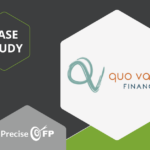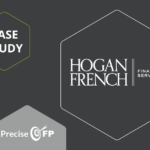In today’s ever-evolving economic landscape, regulatory compliance remains a dynamic and vital aspect of financial firms’ operations. With each passing year, the regulatory framework undergoes constant revisions and updates, posing new challenges for businesses striving to stay ahead of the curve.
The year 2022 witnessed a remarkable surge in regulatory activity, with the SEC introducing a staggering 33 new rule proposals. This significant uptick marked a substantial increase compared to the previous years, where we saw nine proposals in 2021 and eleven in 2020. While only a handful of these proposed regulations have been officially finalized, it’s evident that the financial industry is poised for significant changes in the near future.
These regulatory transformations are unfolding against a backdrop of market volatility, heightened cybersecurity threats, and declining investor confidence. For firms and financial advisors, this convergence of challenges makes for a demanding period. However, amidst the uncertainty, one constant remains—compliance serves as the cornerstone of a thriving financial firm and a positive client experience.
Recognizing the enduring importance of compliance, especially in turbulent times, is crucial for positioning your firm and clients for enduring success. This shared sentiment emerged as the prevailing theme during the Docupace Roundtable Webinar titled “The Art and Science of Compliance,” where experts in the field of compliance explored strategies for firms to proactively prepare for regulatory changes.
In the following sections, we’ll delve into strategies on how to make compliance a top priority amid the ever-evolving landscape of regulatory changes.
Check Your Product Offerings
Strong compliance efforts are rooted in products. Not every product is a good fit for every firm or advisor, and understanding how your product offerings relate to compliance regulations is crucial to following the rules.
Many firms leverage a committee to holistically evaluate product offerings and ensure they meet the firm’s culture. This committee, or a designated employee within the firm, considers the risks of each product, the reporting required, and whether the products match clients’ needs.
But that due diligence isn’t a one-time event. A product may seem like a good fit for the firm now, but the market or regulations could change over the next months or years, potentially leading to issues or increased risk around the product. You also want to consider the industry. Would your colleague down the street consider the same product for this client? If not, regulators might see this as a red flag.
Advisors must also ensure they truly understand all the aspects of the products, including the lengthy disclosures. With so many reporting requirement details, advisors must be able to communicate the ins and outs of the product to clients. How can advisors expect to stay compliant with a product if they don’t fully understand it? Firms that lead in compliance understand the importance of selecting only the best products for their needs.
Create a Strong Process
Compliance doesn’t happen by chance. It requires a concerted effort to ensure every advisor, employee, and client follows the rules. These processes are even more crucial as regulations change and ensure firms can adapt to the latest rules. Because of that make your process living and breathing, adapting as regulatory changes occur. Without a solid procedure, firms are much more likely to struggle to adopt new regulations, and compliance and the client experience could suffer.
Compliance involves a detailed process, from onboarding new clients, marketing, setting up accounts, evaluating risk, and more. Procedures ensure that nothing falls through the cracks and allow advisors to re-evaluate a product for risk and conflicts of interest to avoid potential compliance issues.
Similarly, new regulations mean firms must regularly communicate with advisors and clients to ensure everyone is on the same page. SEC and FINRA updates can be lengthy, so having a process to distill the most pertinent details, inform advisors about what it means to them, and update clients ensures every rule is followed.
Keep Compliance Top of Mind
When a new regulation hits, advisors and back-office staff often must jump through hoops and change their workflows. But the work doesn’t stop after the new rules have been adopted. Maintenance is just as essential as initial compliance.
Compliance isn’t a box you can check. It requires continual effort and attention. Firms that prioritize compliance regularly re-evaluate their risks and update their strategy. The need for regular maintenance is especially strong in cybersecurity, with criminals continually updating and improving their attacks, as well as in document retention. It’s one thing to adopt a new form or process, but it’s another to store and organize those forms properly. Communication and document control are key aspects of compliance maintenance.
To keep compliance front of mind, firms must establish a culture of compliance that keeps advisors and staff up to date on changing regulations and maintains the importance of staying in compliance. Firms must also put their money where their mouth is. An uncertain economy can lead firms to cut costs, but compliance can’t be on the chopping block. As new threats emerge and regulations change, firms must devote more resources to staying in compliance. During challenging market conditions, you need compliance — especially maintenance — the most.
Discover the power of PreciseFP, the ultimate solution for precise data gathering. With its robust compliance features, seamless integrations for secure data transmission, and top-notch security protocols, PreciseFP is your trusted partner in simplifying the data collection process while ensuring data security. Start your journey toward efficiency and security today by signing up for our free 14-day trial of PreciseFP.







